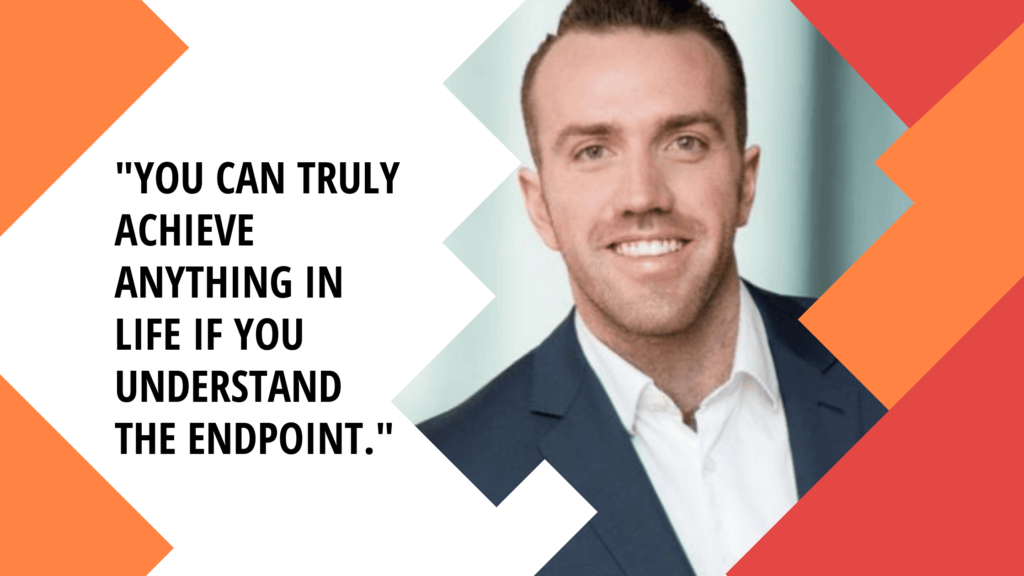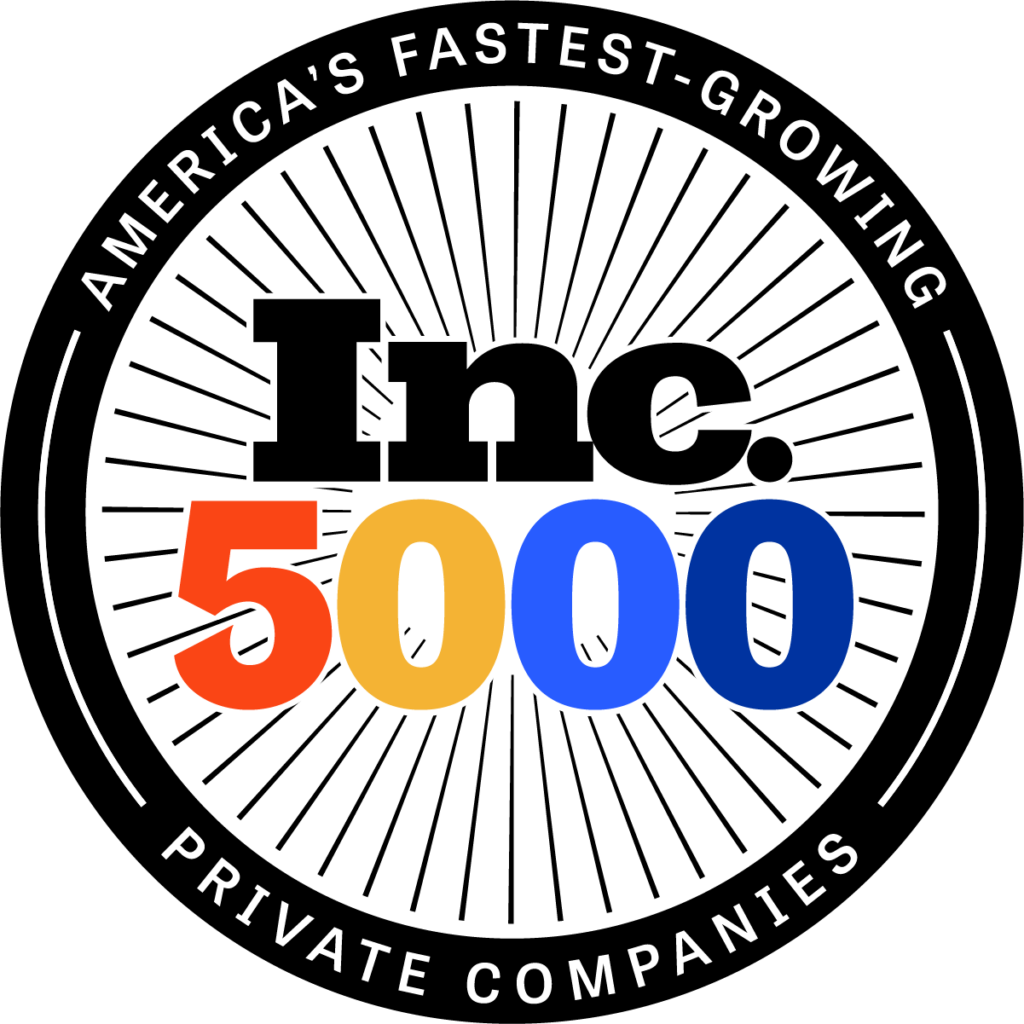A career sales and marketing executive, Scott Clary re-writes the playbook on sales, marketing, brand, and take to market strategy. He currently runs a global SaaS sales and marketing organization and is the host of the Success Story podcast where he interviews inspirational people, mentors, and leaders.

I’m going to start with something that you tweeted recently. You said, “Your product doesn’t have to save the world. It just has to save time.” There is definitely a sense that you need to change the world to make an impact in today’s day and age. Let me know what from your history has made you convinced that saving time is so powerful.
Certainly. I think this is something that I’ve learned from working with successful entrepreneurs, as well as people that have started successful side hustles or side businesses. You have to understand that to achieve a level of success in your life and say that could be financial, monetary, or freedom, it could be moving away from the job that you are already at right now. Don’t get me wrong. This is not meant to be a podcast focusing on moving away from jobs. That’s not really my main message.
If you are building something, or if you’re creating something, when you start with small steps and you solve a problem that you’ve realized is present in your life, like saving time or, for example, helping somebody solve a problem or a need that is hyperspecific and only you would really know that because you’ve lived it, that is probably the best way to make a living for yourself “becoming an entrepreneur.”
Before what I am doing now, I was actually working with a startup incubator in Toronto. A lot of entrepreneurs, they want to launch the next Uber, Airbnb, Tesla, Amazon, whatever it may be, but that’s if you want to go into your own thing, the best advice I can give you and the reason why the most successful entrepreneurs are not the Harvard grads, they’re actually the people that are between 30 to 40 that have had success in a career working for somebody, they figured out a problem and they know how to solve that problem and they build a business based on that problem that they’ve experienced themselves.
If you are into building your own thing, don’t think you have to do everything or change the world. You can have a very successful, very happy life just, for example, saving some time or saving a small little pain point that you’ve experienced in your life.
You definitely hit on it a little bit there. You’ve had the opportunity to work with some amazingly innovative companies over the years. Talk about some of the leaders that have really impressed you. What sort of traits do they bring to the table? Maybe what sort of traits have they brought to the table that might surprise people?
Sure. Of course, the traits that I would think would be or lead to the most successful entrepreneurs, you’ll hear these traits mentioned a lot, but the ones that I like to speak about are grit and curiosity. By the way, these two traits make for successful entrepreneurs and successful entrepreneurial leaders, but they also make for highly successful individuals within organizations as well. Grit, the term, if I’m not mistaken, is coined by Angela Duckworth. She did an incredible TEDx Talk on it. Really, it’s just about perseverance in the face of adversity and never stop.
You never stopping moving forward. You never stop regardless of what’s thrown at you. In an entrepreneurial venture, people have to understand that entrepreneurship is not as sexy as it’s made out to be. It’s actually quite stressful, quite hard, very depressing, a lot of hard work, a lot of extra hours. You’re going to question yourself, you’re going to question who you are, should you be doing this, a ton of imposter syndrome. If you don’t have that grit to push through psychologically, you’re going to fail. Grit is very important.
Curiosity is important for, again, somebody within an organization or an entrepreneur because they have to always be curious, always be learning, be an autodidact, like be somebody who takes the self-initiative to go learn things. You’re not waiting for somebody to impose that learning on you. You’re going to learn things yourself. It could be YouTube, Udemy. It could be courses. It could be taking an MBA. It doesn’t really matter, but you’re taking that initiative on yourself to always be learning. If you have a curious personality, you’ll notice that you just solve problems yourself without asking for help.
Those are, of course, the best entrepreneurs. Because a lot of the time, they do have to figure stuff out. Even if you have a great mentor or mentors, you have to figure stuff out yourself. Also, those are the people like, for example, that’s what I look for when I want to hire somebody. I’m in sales. I’m a sales leader. If I’m trying to hire a sales rep, I’ll look for somebody who’s curious. I’ll look for somebody who wants to explore, wants to try new things, wants to figure stuff out because I will always be the most successful employee. I would actually add one more just in terms of entrepreneurship, vision.
Vision is incredibly important for an entrepreneurial leader, probably less so in terms of organizational vision if you’re working with a company. You should probably have a personal vision for your own career path, but this really manifests with an entrepreneurial leader. You have to have vision. If you don’t have vision, no one else in the company will have vision, no one else will understand where the company’s going. You will not be able to enable motivated people to be successful if you don’t, as an entrepreneurial leader, have vision. Those three things would be very, very important and things that I’ve seen manifest in successful leaders almost across the board.
I’m going to pick one of those and I’m going to pick grit. I’m going to ask you to use grit to describe a little bit of your journey and maybe what was a defining moment in getting you to where you are and how did grit play a role in this. You’ve built a very successful entrepreneurial journey for yourself, can you talk a little bit about how grit played a part in that for you personally?
Grit, in my opinion, like I mentioned, is the ability to keep going when things don’t go the way they’re supposed to, and you keep persevering and pushing forward. I’m going to tie that into something that I learned at a young age. This is going to sound so corny but bear with me. You can truly achieve anything in life if you understand the endpoint. You almost create a work-back schedule, like a set of milestones and steps to get there, and you just action on every single one of those steps, and you just do not stop on any single one of those steps. It’s incredible that you actually end up where you’ve set yourself up to be where you actually want to be.
It seems so cliche, it seems so common sense, but the first time I ever actually understood the power of this mental narrative was when I was working for a company. I was an account executive. I wanted to move into a leadership position. I quite literally understood what the leadership position entailed. I put together a presentation. There was no opening for the leadership position. It was not something that was pushed on me or nobody asked me to do this, put together a presentation, presented to founder of the company at the time and another director at the time. That actually ended up getting me the leadership position that I basically created for myself within a team.
It was a very short path, but it still highlights this incredible understanding that if you can understand where you want to be and you do map out the steps to get there and you continue actioning on those steps and if you don’t find a way to truly fulfill one of those steps, you’ll find a workaround or find another way, you’re always moving in that direction. To me, that’s what grit is. That’s what I’ve applied in that particular situation, as well as now that I’ve understood that if I ever want to accomplish anything, if I ever want to do a deal, if I ever want to build a business, if I ever want to do anything in my professional life and this can also be applied to my personal life, just figure out your end goal and be uncompromising in actioning steps towards your end goal. That’s something that I live every single day now. That, to me, is a practical application of grit. Would you agree with that?
I would. I think that having these conversations with successful leaders has been one of the most enjoyable things that I’ve ever done in my professional career. The two words of the three that you said that have popped up the most in these conversations are grit and curiosity.
I think the interesting thing about curiosity is that we all have so many opportunities to get pieces of information that are intriguing to us. The internet, social media, has definitely democratized that in the sense that you can go out and find people that are interesting to you and connect with them directly. What do you think allowed you to scale yourself as a personal brand? Are there moments or memories from early on in this journey that really stick out to you?
That process that I just mentioned, where you have that end goal, that vision, and you map out those steps to get there, that’s essentially creating a process. It’s creating a process around that end goal. To add on to this, I would say that the most efficient way to action anything in real life is to set a process for everything. It could be, let’s be very tactical with social media, with building your own personal brand. It could be a process of ideating on content, writing out that content, and putting together a posting schedule, but you have to be religious about when are you blocking off time to create those five pieces of content and scheduling them out throughout the week?
For me, one bit of this would be a Sunday night. I spend two hours every Sunday night, no matter what I block that two hours, and I’m creating content for myself, and I have processes for how I source that content, how I think about that content, what I want to actually put out there, the types of content that goes out. That’s one process for a particular segment of my life. I have processes for quite literally everything. I have processes for maintaining energy levels throughout the day. I have processes for my workout schedule and what I want to work out on which particular day. Then I have sales processes, sales campaigns, marketing processes for my actual job.
To actually be effective at any of these things, it’s all about developing the processes and systems that allow you to be successful because if you don’t develop those, as much as you want something, you will end up burning out. Even if you put unlimited energy towards it, it’s not sustainable. Grit is one thing, but then developing processes systems to enable that tenacity or that grit is probably level two.
A theme that definitely comes up in a lot of your work and you’ve hit on it a few times here is branding and you wrote a popular article, The Ultimate Guide to Branding, which stated that your brand is arguably one of your organization’s most important assets. It gives your organization an identity and it makes your business memorable. What do most people get wrong about branding? If I could ask it another way, not just company branding, but also you’ve talked a lot about personal branding. Maybe can you hit branding more broadly and then talk a little bit about what people get wrong from a personal brand perspective?
Sure, great question. Because most B2B branding I find is not done with the customer in mind, it’s done based on what the business thinks they should be perceived as, which ends up being very corporate, very bland, very out of touch or out of tune with their actual audience and very forgettable. From a corporate perspective, the classical definition of a brand, you can see that in most companies, but I would say a brand has to go a step further and has to be something that truly resonates with the audience or the customer that they want to be selling to. I feel that 90% of companies miss the mark when it comes to truly building a brand that is relatable and something that people actually care about.
One company that I always reference, it does it very well is Morning Brew. They’re a business newsletter that’s actually grown significantly and they were just sold for a fair amount of money to Insider Inc. They exited, but they built a brand based on I would say, just being relatable and they still had their corporate brand or identity, but they took it a step further and they made it so that their brand is focused on what their customers wanted, not just how they wanted to be perceived by their customers. From a business perspective, look at Morning Brew as a case study for a successful brand. Most other brands are there. Nobody really cares about them. If people care about your brand, if people are interacting with your brand, that’s a good sign.
Look at the largest organization’s social media, for example, how many people are actually commenting and caring about the stuff they put out, if it’s not just a complaint about the product or service? That’s corporate brand. Personal brand, the things people don’t do, that people don’t really care about personal brand, or don’t see the value or the benefit of personal branding, and personal brand doesn’t have to be the GaryVee Experience. Personal brand doesn’t have to be that level of brand but realize that if you are in any position, you already have a brand. Brand is what people think about you, brand is perception, and if you choose to not shape that brand, put out content or even speak to who you are as an individual out in the public eye, then people will have a preconceived notion about you positive or negative, and you can do nothing to control that.
At the very minimum, what you can do is if you are an individual and you’re trying to– I’ll take it back to sales, which is just my arena or marketing, if you’re trying to sell something or market something to somebody, build a brand around helping individuals that you’re trying to sell to, answering questions that the people that you would want to be selling to would be asking. Be a thought leader, be somebody who is just really, really clocked into what your industry or your audience cares about. Because that in and of itself is a brand, and if you don’t do that, then you’re leaving people’s perception of who you are as an individual, as a sales individual, or a marketing individual, SDR, AE, director of sales, director of marketing, social media, whatever.
When they connect with you, when they research you, when they look out to see what you’re all about on LinkedIn, they’re going to have their own idea about what you do, and if you don’t do anything to shape that idea, you’re playing a dangerous game because let’s also understand why it’s important to do this as an individual. Again, you don’t have to have a piece of content that goes out every day, but if you are in a B2B sales and marketing environment, and you’re selling something or marketing to somebody, those individuals do research. They do 70% to 80% of their research on the company, but also on the individuals associated with the company, especially the people that are actually actively selling to them before they even engage with the company and the stats vary.
It’s a significant amount of research is done before they engage with a sales rep from the target company. If you don’t have a brand, that person is reaching the website, you sent them a cold email. They’re looking at your LinkedIn. You have no job history, no title. You have that gray little LinkedIn face that comes when you set up an account and no profile picture. Immediately, they’re going to have some sort of opinion of you, and it’s probably not going to be a positive one. Building a brand is all about putting yourself out there, just truthfully authentically and teaching and showing people what you do so that they don’t have to guess, and that’s the personal brand side.
That advice really about brand as perception and building a brand about helping people is really a wonderful spot to shift to the final two questions that I get to ask, all guests that are somewhat personal in nature. If you’re ready, here we go with question number one, if you could describe your personal leadership style in one word, what would that word be?
It would be congruence. Can I expand?
Yes, go for it.
Congruence between what you’re asking somebody to do, and what their own personal goals are. If you have a leadership style that’s asking somebody to do something and it doesn’t align with their personal goals or their personal vision or their career goals or their career vision, there’s going to be this conflict. There’s going to be this friction and they may do it for a while, but I can guarantee you, they’re not going to enjoy doing it. They’re not going to be operating at 110% capacity, and they’re eventually not going to be with your organization. True leadership is about aligning what the organization, what the leader wants, with the goals of the individual, and if you achieve that congruence, then everybody wins at the end of the day.
I come from a sales arena. In sales, there’s a thing called activity-based management. It means that the calls they make, the revenue they achieve, the demos they booked, those are all tied to personal or professional goals, financial goals, but you have to know what those goals are for your peers so that you can align the goals of the organization with the goals of the individual. There’s different things that you can do to be a good leader, but I would say the one thing that I’ve found to be the most impactful is to make sure that you know the goals of your team and your peers, and then make sure that they understand the connection between what the organization is asking them to do and what they’re actually doing on a day-to-day.
That’s helpful. The final question is this, what is the best piece of advice that you have ever received?
I’ve heard it said in a few ways, so I’m not going to name one individual that said it, but the advice sound, “Life is long and the internet remembers everything. When you go out there, I’m telling you to build your brand, I’m telling you to build up a persona, you’re going to do things that people aren’t going to like. That’s fine, that’s expected. Always try and represent yourself in the best way possible. People make mistakes, of course, but remember that whatever you put out there is out there forever. Nobody forgets. The internet is very long, and life is very long.
—
This interview has been edited for clarity.







